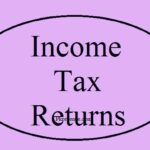ISLAMABAD: Three additional slabs have been added to income from property in order to generate more revenue under this head, sources in Federal Board of Revenue (FBR) said on Friday.
They said that in the last budget 2019/2020, effective from July 01, 2019, three additional slabs have been added to income from property in order to generate more revenue.
Prior to the amendment there were five taxable slabs of income from property with the highest slab’s rate being Rs. 200,000/- plus 20 percent of income exceeding Rs2000,000.
After the amendment said slab has been limited from Rs 2000,000/- to 4,000,000/- and thereafter three additional brackets of income between four to six million, six to eight million and exceeding eight million have been added.
The updated table of tax on income from property is as under:
| S.No. | Gross amount of rent | Rate of tax |
| (1) | (2) | (3) |
| 1. | Where the gross amount of rent does not exceed Rs.200,000. | Nil |
| 2. | Where the gross amount of rent exceeds Rs.200,000 but does not exceed Rs.600,000. | 5 per cent of the gross amount exceeding Rs.200,000. |
| 3. | Where the gross amount of rent exceeds Rs.600,000 but does not exceed Rs.1,000,000. | Rs.20,000 plus 10 per cent of the gross amount exceeding Rs.600,000. |
| 4. | Where the gross amount of rent exceeds Rs.1,000,000 but does not exceed Rs.2,000,000. | Rs.60,000 plus 15 per cent of the gross amount exceeding Rs.1,000,000. |
| 5. | Where the gross amount of rent exceeds Rs.2,000,000 but not exceed Rs. 4000,000 | Rs.210,000 plus 20 per cent of the gross amount exceeding Rs.2,000,000” |
| 6. | Where the gross amount of rent exceeds Rs.4,000,000 but does not exceed Rs.6,000,000. | Rs.610,000 plus 25 per cent of the gross amount exceeding Rs.4,000,000. |
| 7. | Where the gross amount of rent exceeds Rs.6,000,000 but does not exceed Rs.8,000,000. | Rs.1,110,000 plus 30 per cent of the gross amount exceeding Rs.6,000,000. |
| 8. | Where the gross amount of rent exceeds Rs.8,000,000. | Rs.1,710,000 plus 35 per cent of the gross amou |
(b) The rate of tax to be deducted under section 155, in the case of company shall be 15 percent of the gross amount of rent.
The chargeability of tax on income from property has been explained in Section 155 of Income Tax Ordinance, 2001.
Section 155. Income from property.— (1) Every prescribed person making a payment in full or part (including a payment by way of advance) to any person on account of rent of immovable property (including rent of furniture and fixtures, and amounts for services relating to such property) shall deduct tax from the gross amount of rent paid at the rate specified in Division V of Part III of the First Schedule.
Explanation.- “gross amount of rent” includes the amount referred to in sub-section (1) or (3) of section 16, if any.
(3) In this section, “prescribed person” means –
(i) the Federal Government;
(ii) a Provincial Government;
(iii) Local Government;
(iv) a company;
(v) a non-profit organization or a charitable institution;
(vi) a diplomatic mission of a foreign state;
(via) a private educational institution, a boutique, a beauty parlour, a hospital, a clinic or a maternity home;
(vib) individuals or association of persons paying gross rent of rupees one and a half million and above in a year; or
(vii) any other person notified by the Board for the purpose of this section.


